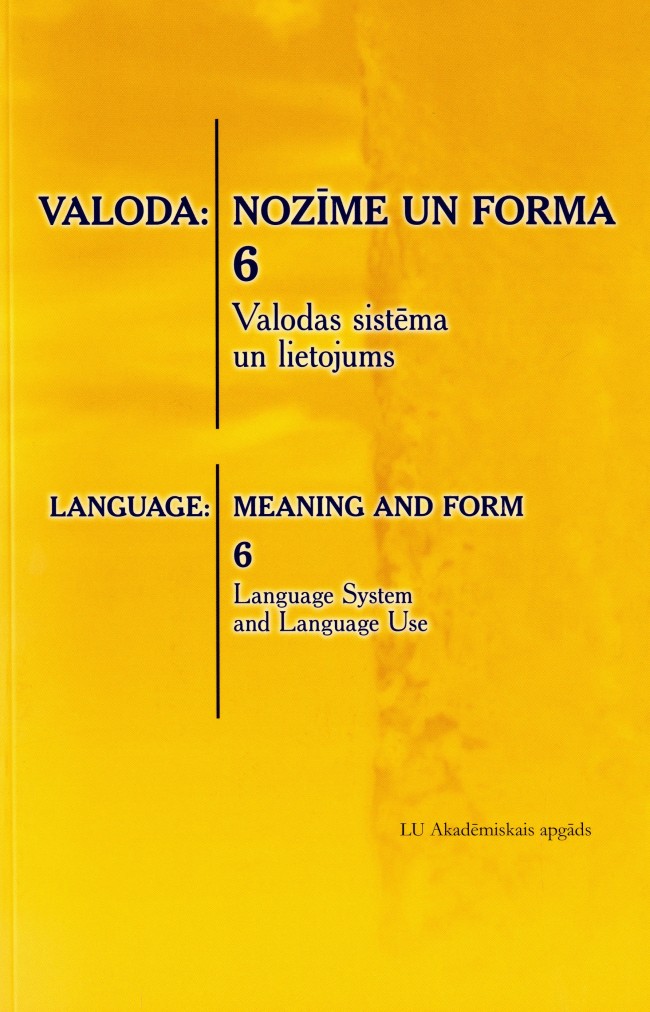Regulārie atvasinājumi latviešu valodā un mentālais leksikons: izpētes virzieni
Regular derivatives in Latvian and the mental lexicon: possible directions for research
Author(s): Tatjana PakalneSubject(s): Language and Literature Studies, Theoretical Linguistics, Applied Linguistics, Psycholinguistics, Cognitive linguistics, Baltic Languages
Published by: Latvijas Universitātes Akadēmiskais apgāds
Keywords: vārddarināšana; regulāri atvasinājumi; mentālais leksikons; valodas sistēma
Summary/Abstract: In theories of language inflection and word-formation are traditionally referred to grammar and lexis, respectively. However, there are some long-standing problems with this distinction. Firstly, the word-formational resources of language are a collection of very different morphological models in terms of form, semantics and function and at least some of them are quite relevant to syntax. Secondly, it has proved impossible to draw a distinct boundary between word-formation and inflection (borderline cases in Latvian include declinable participles, the diminutives of nouns, deadjectival -i adverbs, certain types of prefixal verbs, reflexive verbs). Furthermore, the general criteria normally used to substantiate the inflection–word formation distinction are either prone to exceptions or circular, i.e. depend on definition. On the other hand, regular word formation processes (such as deverbal nouns with -šan-, -um-, -tāj-, -īb- or deadjectival nouns with -īb-, -um- in Latvian) and regular inflectional processes share a number of important properties, such as regularity, high productivity, synchronic availability, which enables language users to produce word forms and regular derivatives online, by using morphological models based on systematic form–meaning correspondences between words found in language use as opposed to acquiring individual, more specific correspondences. The article attempts to place the study of regular derivatives in Latvian in a wider context, i.e. if language is viewed as a complex dynamic system shaped by communicative interactions of numerous idiolects over time, the mental aspect of language in individual speakers becomes directly relevant to the study of language structure.
Journal: Valoda: nozīme un forma
- Issue Year: 2015
- Issue No: 6
- Page Range: 173-188
- Page Count: 15
- Language: Latvian

